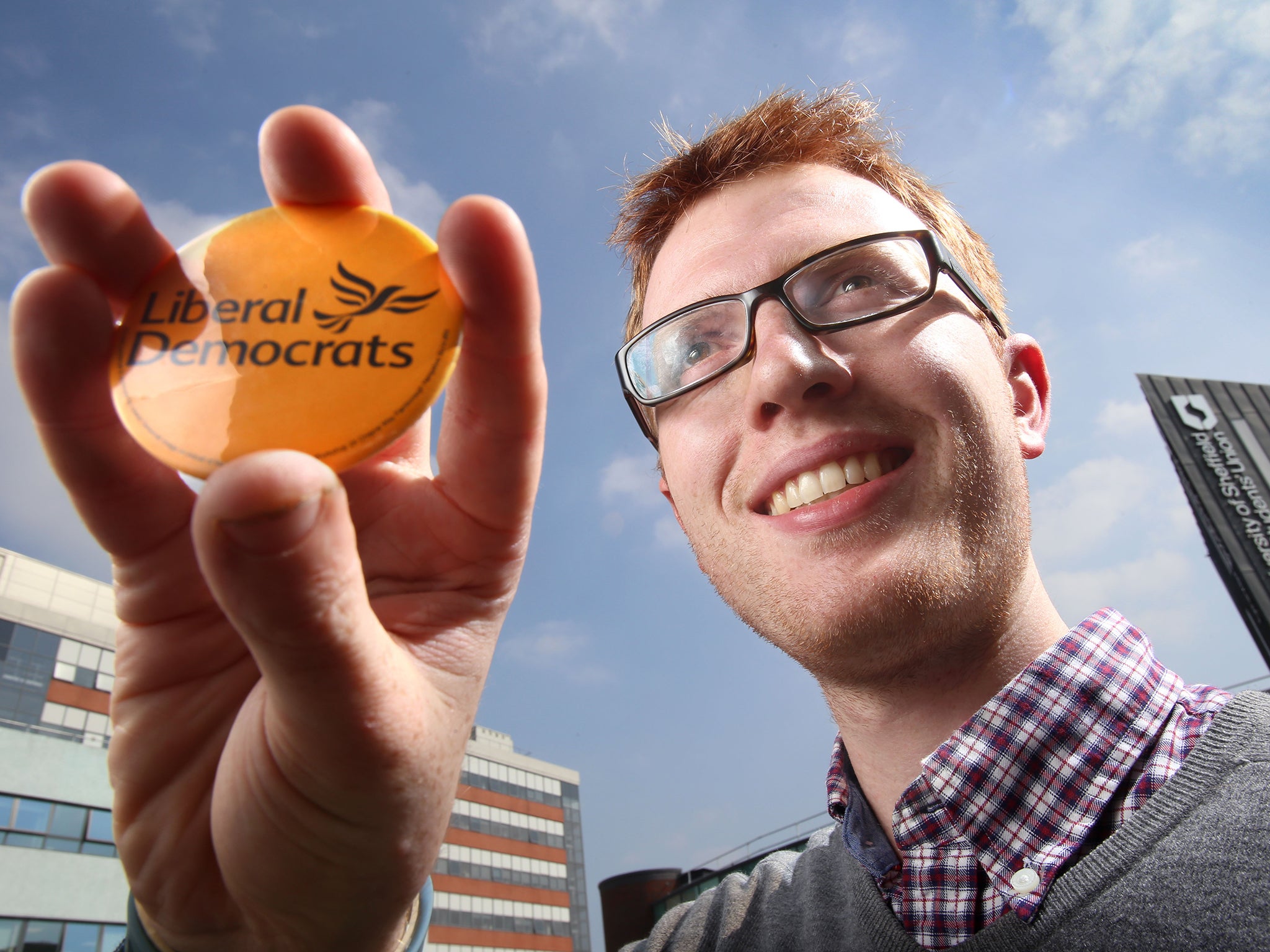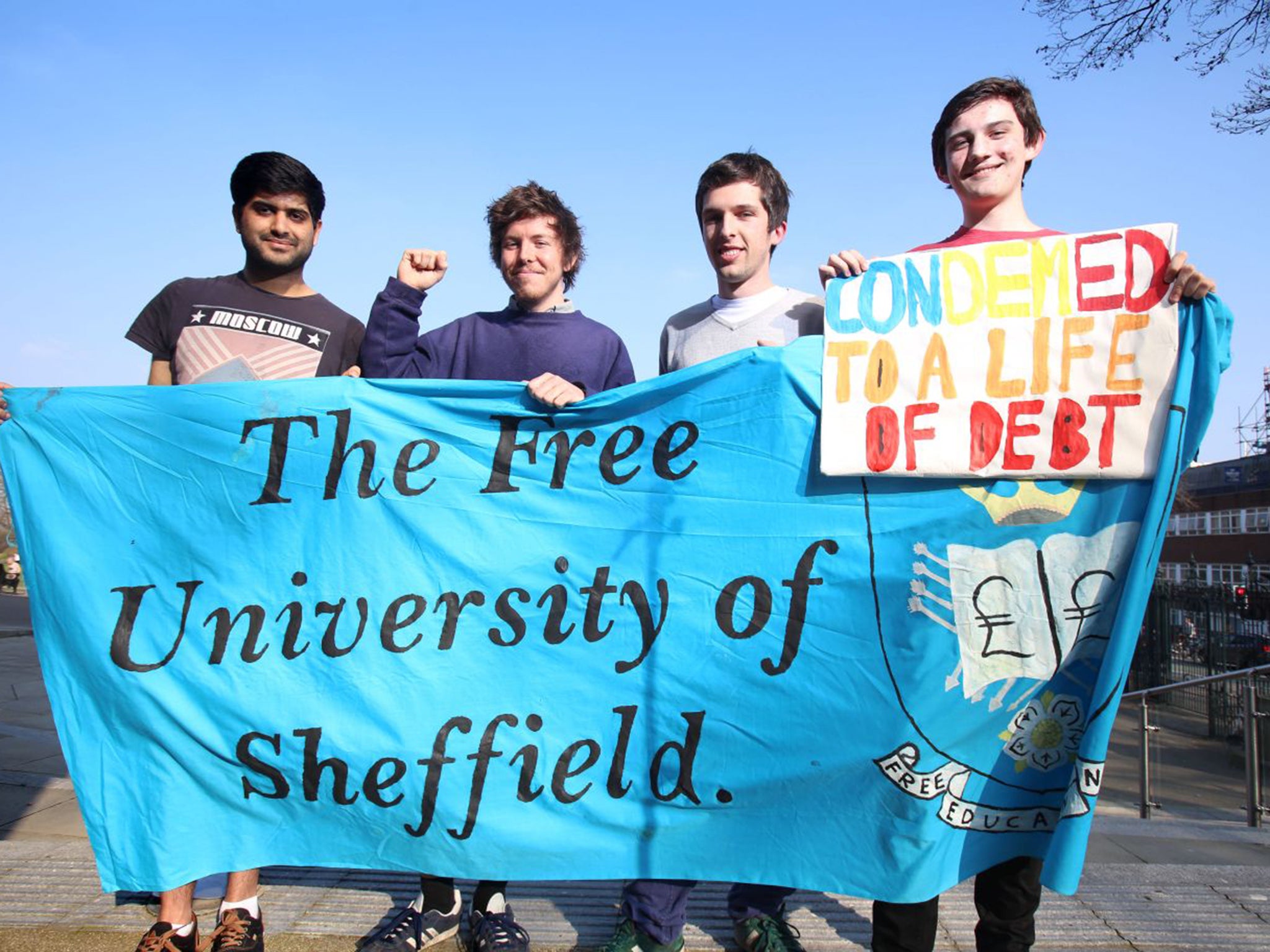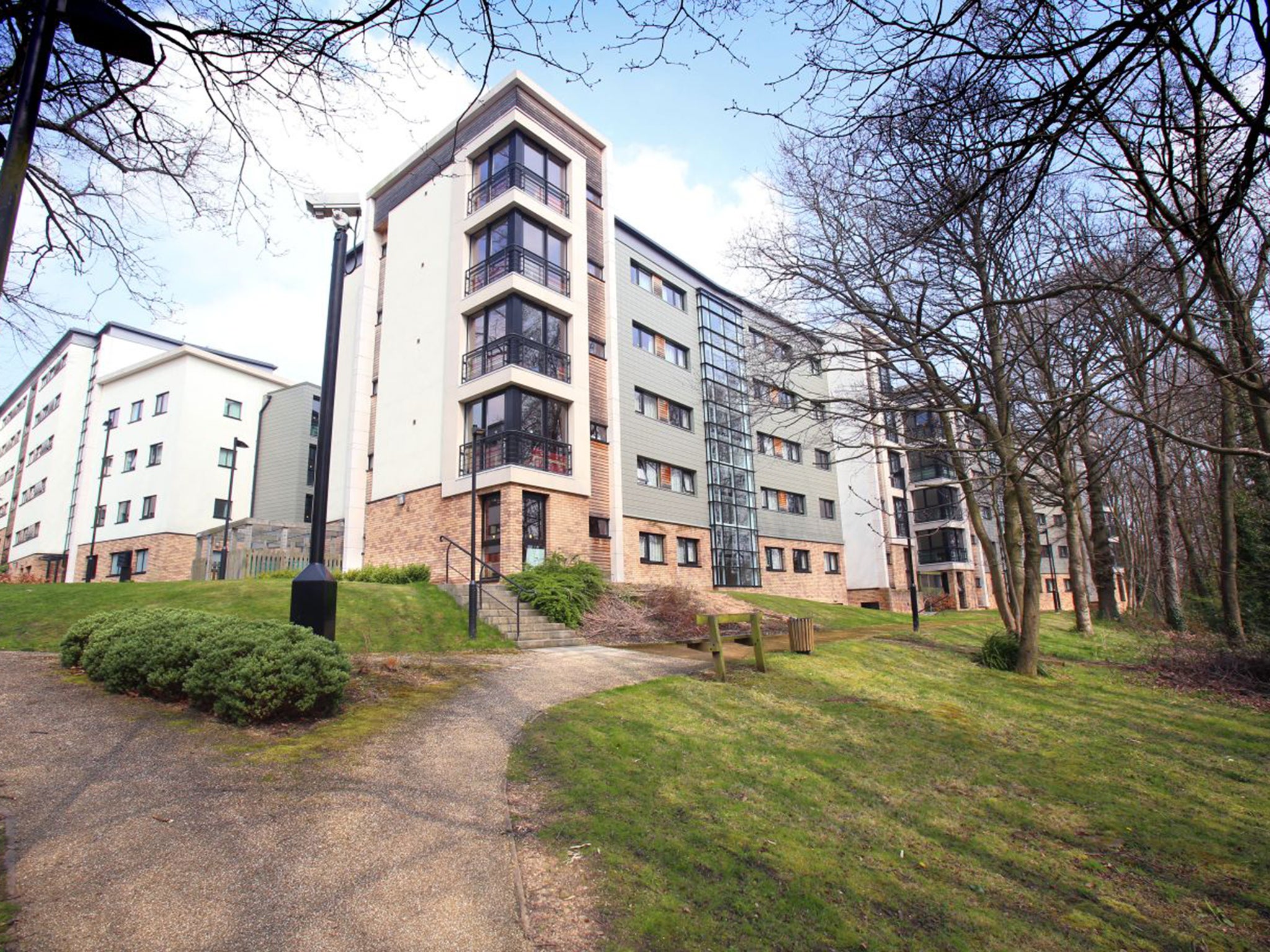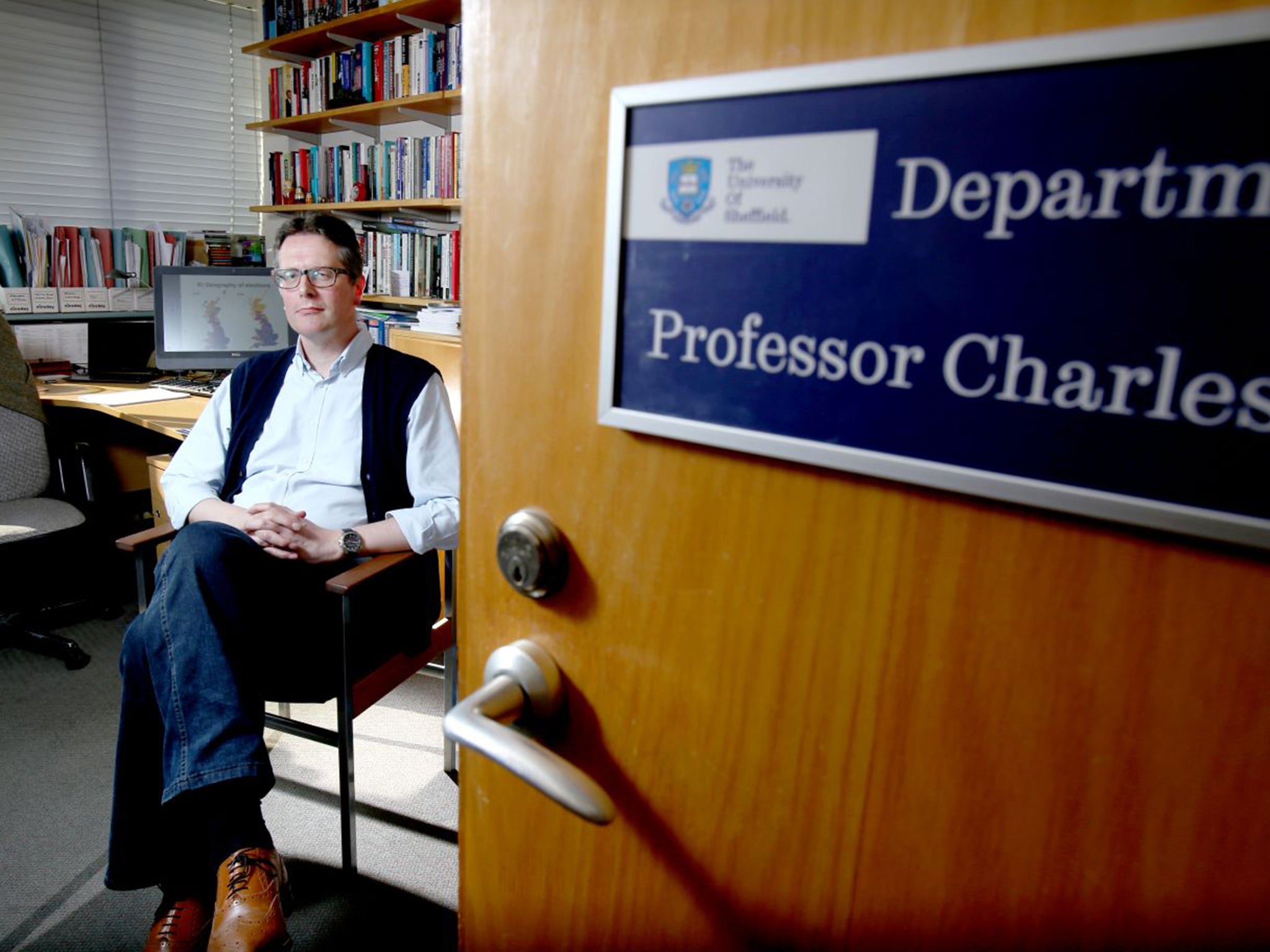General Election 2015: The young people who may cost the Lib Dems dear
Students and first-time voters could play a central role on 7 May. So what are they saying in Nick Clegg's Sheffield seat?

Your support helps us to tell the story
From reproductive rights to climate change to Big Tech, The Independent is on the ground when the story is developing. Whether it's investigating the financials of Elon Musk's pro-Trump PAC or producing our latest documentary, 'The A Word', which shines a light on the American women fighting for reproductive rights, we know how important it is to parse out the facts from the messaging.
At such a critical moment in US history, we need reporters on the ground. Your donation allows us to keep sending journalists to speak to both sides of the story.
The Independent is trusted by Americans across the entire political spectrum. And unlike many other quality news outlets, we choose not to lock Americans out of our reporting and analysis with paywalls. We believe quality journalism should be available to everyone, paid for by those who can afford it.
Your support makes all the difference.Meet Harry. Bright, bouncy, bespectacled and ginger, he is in the fourth year of a physics degree at Sheffield University. He’s also a fan of Nick Clegg, which is pretty rare these days among students.
“Some of them are angry,” he says, putting it mildly.
Five years ago, they formed long queues outside the polling stations in Sheffield Hallam in their eagerness to vote for the Liberal Democrat leader who had promised to stop any increase in tuition fees.
So many first-timers turned up that, when the doors had to be shut at 10pm, hundreds of people were locked outside and denied their democratic right to vote. The police were called and arrests were threatened but the protests went on into the night, as students expressed anger at not being able to support their champion, Nick Clegg. They won’t be doing that this time.
“I understand why people are unhappy,” says 23-year-old Harry Matthews, the physicist who is wearing a bright orange Lib Dem badge when we meet at the Student Union. He knows that the very sorts who helped to elect Clegg last time are now threatening to kick him out.

That is because they believe the Lib Dem leader broke his promise for the sake of being in power. He became Deputy Prime Minister and the cost of a degree trebled. His party will lose votes across the country because of that broken pledge.
This will be the closest election in years, with many seats up for grabs. Tiny groups of people could hold the balance of power in many places. For that reason, the views of students and others among the seven million people in Britain aged between 18 and 25 have never mattered more.
The best example of that is in Sheffield Hallam, which has two purpose-built university villages and more students, academics and public servants than any other constituency. Roughly one in five voters here is studying for a degree, has recently graduated, or works at Sheffield or Sheffield Hallam universities.
Not all of them will vote against Clegg, but enough might do so to topple him. The Lib Dem leader once had a seemingly unassailable 30-point lead, but three recent polls suggest it has vanished. He has even been overtaken now, narrowly, by the Labour candidate, Oliver Coppard.
If that turns out to be the result on 7 May it will be a massive political upset, the most significant decapitation of a party since the 1930s, according to Professor Charles Pattie, of Sheffield University, an expert in electoral geography. “If the polls are right, this is on a knife edge. In a race this close, every vote counts.”
But those words do not just apply to Sheffield. Students could tip the balance of power in at least 10 constituencies, according to the Higher Education Policy Institute (HEPI). These range up and down the country from Portsmouth South to Lancaster and Fleetwood, from Bristol West to Lincoln.
The prediction was made last year, before the changes in Sheffield Hallam were revealed. Nick Hillman, director of HEPI, has said he thinks that the influence of young voters extends way beyond those 11 seats. “If the opinion polls are a guide to the next election, then students could just swing the overall result and hold the keys to power.”
Generally speaking, students backed the Liberal Democrats at the past two elections, but now they are swinging behind Labour again. Except Harry Matthews, of course. “When I go out on the doorsteps, people say they understand that, as the junior coalition partner, you can’t always get your own way.”
Harry is paying only £3,000 a year for his degree, because he started it before fees soared. He joined the party just before the last election, when he was still at school. Where? “Eton College. So, I’ve got the background for it,” he says, presumably meaning politics. I’m not sure if that’s a joke.
When his finals are over, he plans to abandon physics for a career as an accountant with KPMG, although he will still campaign for the Lib Dems. “Nick has said sorry about fees. What other party leader does that?”

The answer is that pretty much all of them have apologised for something lately, as they struggle to adjust to the hallucinatory new realities of a system in which seven leaders debate instead of three. They have also been wheeling out policies designed to attract the support of young people. The question is, how many will actually vote? Only 44 per cent did last time, according to the Electoral Commission.
This time, 3.3 million people will have the chance to mark their cross for the first time, but will they do it? Only a third of the first-timers are definitely going to vote, according to polling for the think-tank British Future. A third have yet to decide whether they will and a third are definitely not going to vote. Why not?
“The overwhelming feeling is that politics don’t really matter or that voting is something for posh politicos and not normal people,” says Elsa Vulliamy, a 20-year-old philosophy student who edits Forge Press at Sheffield University. And she’s speaking from a place where young people are more switched on to politics than usual.
We can have a pretty good idea of what others think, thanks to the polls, surveys and interviews that have filled the air since the start of the election campaign. Some say that politics is too old-fashioned and needs to be modernised. You should be able to vote on your phone, or at least online, they say, instead of having to go to a musty church hall and make a mark on a piece of paper with a pencil. They’re right about that.
Then there are the young people who say that they can’t relate to politicians. “They don’t look like us or talk like us, or think or act like us,” said one teenager during a BBC debate. It is true that the House of Commons is a long way from representing the ethnic, social and sexual diversity of the British electorate; but many in the wider population think exactly the same thing as that young woman. Politicians often seem like a class apart. However, that is a reason to vote for better candidates – or stand yourself – rather than walk away.
Young people often say that politics is not about things that concern them. That is tosh. Particularly now. Getting the right education and training, not being weighed down with debt, finding somewhere to live and work, these are among things that concern young people most personally, according to research for British Future. They are also issues at the heart of this election.
Young people cannot say they are being ignored. The Government has spent £30m on trying to persuade them to register, including social media campaigns and support for activist groups such as Bite the Ballot, which says: “By not registering, you’re doing exactly what the system expects of you. Rebel now and take action.”
But there is a problem. The deadline for registration is a week tomorrow, but a change in the system has led to chaos and confusion, particularly for students. Those living in halls used to be registered by their university. Now they have to do it themselves, on a website that says it will take three minutes. “All you need is your name, address, date of birth and national insurance number.” How many new students know their number?
Labour says a million names have been lost from the electoral roll as a result of the change; the Government says a million have been added in the past three weeks.

There will always be some, of course, who refuse to vote because the system is corrupt or unfair. Meet Kai, a 21-year-old politics student who refuses to give his second name. He seems just as bright as Harry but far calmer, sitting cross-legged on the ground in a park with his friends. I am happy to report that young student radicals still wear wispy beards and Che Guevara T-shirts.
Gentle teasing aside, they are part of a growing movement across the country that is calling for “free” education – meaning no fees – and colleges accessible to all, “non-hierarchical and collectively led”.
The Free University of Sheffield – as this particular group of 20 or so students calls itself – occupied Nick Clegg’s constituency office last month, although it turned out to be one of history’s milder protests. They walked in through an open door, sat down and left again 20 minutes later when the police came. They were lucky not to have been handed a mug of tea and some envelopes to stuff. This was the Lib Dems, after all.
Surprisingly, given his eagerness to see Clegg defeated, Kai will not be voting at all. “I don’t think ticking a box on a ballot paper once every five years can do electoral participation any justice. I think it’s a farce and I don’t think anyone should be convinced by it.”
Half of the group around him say they will be voting, though, either Labour, as a tactical move, or Green, on principle. For a while, it looked as if a mass movement might grow up around the comedian Russell Brand’s call for people to reject voting altogether, as a protest against the system, but that energy seems to have transferred to the Greens, who are urging the dissatisfied to “vote true”.
In the end, there are no excuses. Everyone is equal inside a voting booth, whatever their age. The apathetic, the alienated and the idealistic all have to accept that if they’re not happy, this is their best chance – for the moment – of getting change.
“We have a small group of anarchists who are campaigning to close down the system, but most still go to Labour or Green meetings and will probably vote,” says Elsa Vulliamy. “They have the ideals and the big vision but they are quite pragmatic, too. They are too smart not to vote.”
Additional reporting by Alexandra Leonards
The Independent has got together with May2015.com to produce a poll of polls that produces the most up-to-date data in as close to real time as is possible.
Click the buttons below to explore how the main parties' fortunes have changed:
All data, polls and graphics are courtesy of May2015.com. Click through for daily analysis, in-depth features and all the data you need. (All historical data used is provided by UK Polling Report)
Join our commenting forum
Join thought-provoking conversations, follow other Independent readers and see their replies
Comments